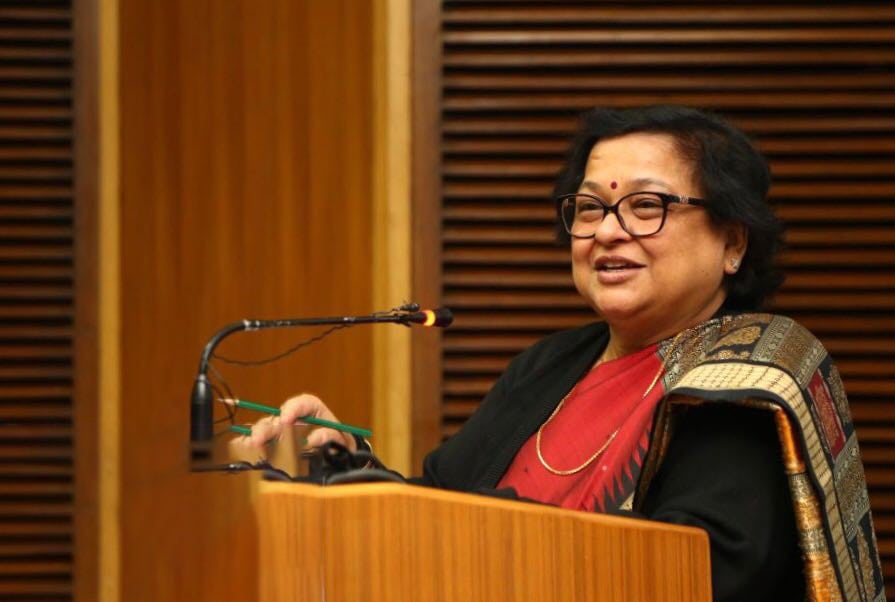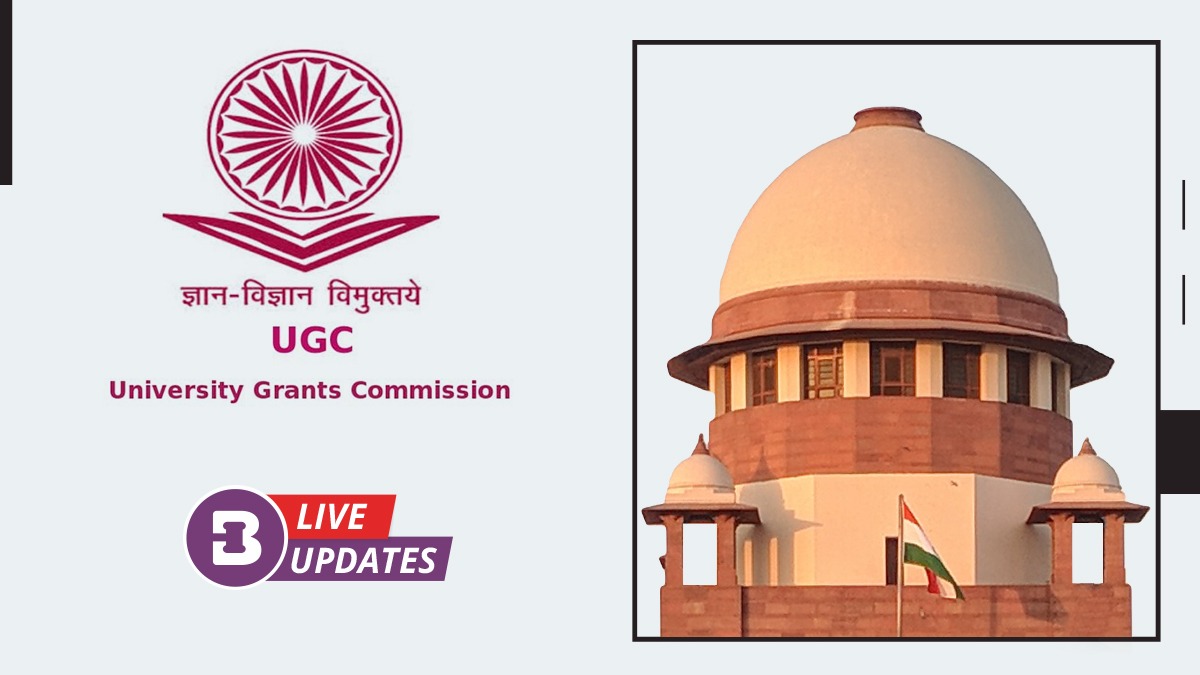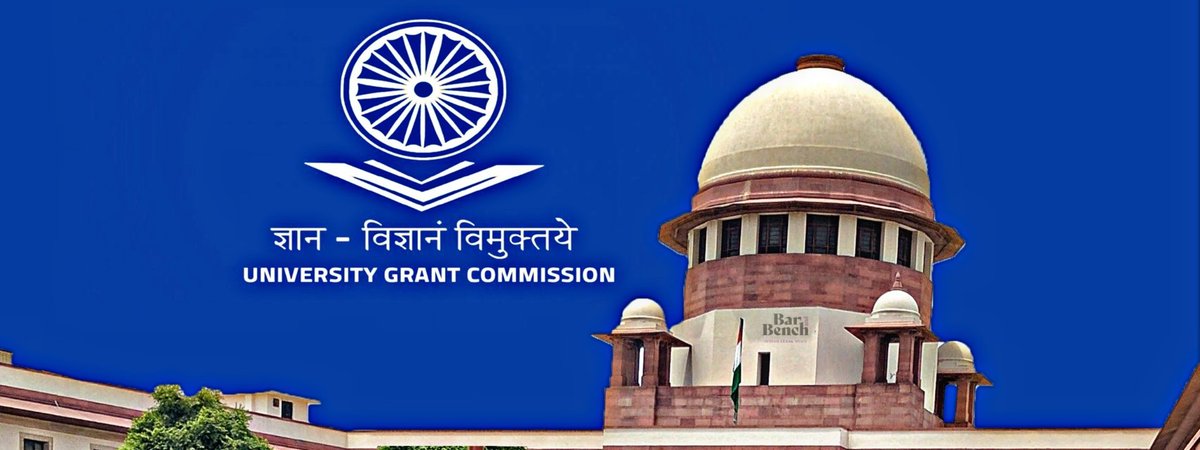The discussion is being live-streamed on YouTube here:
About ten webinars through the year have been planned for the series, informs Sanjay Jain from the ILS Law College, Centre of Public Law.
I don't think even at that time the Bench envisaged the impact of this judgment, says Dr Singh.
The Keshavanadha Bharathi case, which has a 20-year headstart, has only been cited 20 times more than the Vishakha judgment: Singh.
CJ Mittal expresses her gratitude for being invited to the Panel discussion today.
Uniform procedures do not necessarily result in uniform justice. In some cases, the same procedure may result in gross injustice, she adds.
You have to ensure that the victim has a "level-playing field", she says.
What would happen if the ICC is not formed?
You have to provide for putting recommendations of ICC in public domain so that there is transparency. The confidentiality of the parties may be preserved
She adds that the neutrality of the Committee should be obvious and conveyed to the victim and the public.
She speaks of how women are taking to Social Media with these complaints, which "shows how we are failing women employees."
This amendment has been saved (even after the abrogation of Article 370), Chief Justice Gita Mittal observes.
However, a law to not wear full-length pants stayed on until 2013 ...
"We have to sometimes wrest them (inherent rights) back, otherwise we are not going to get them."
There are movement-driven gender rights given over a period of time, she notes.
Whereas the main petition before the Supreme Court had initially focused on a CBI inquiry into the gang rape that triggered the case, Arora recalls that they decided to add another prayer..
But a prayer was also added to focus on what would happen to a woman who is sexually harassed in the course of her work, Arora says.
So the main petition became infructuous
A very frustrated CJI Venkatachaliah asked the NGO Vishaka's counsel, which included Arora, if they could frame the guidelines.
Arora recalls that they seized this opportunity.
"That was the day I lost my cool", Arora recalls.
Why is it (possible misuse) only a problem when it comes to this issue? Arora recalls asking Solicitor General
Finally, the SG was convinced and the guidelines were presented before Court leading to the Vishaka Guidelines
Referring to the "dubious" place given by Courts and elsewhere to S. 498A, IPC as a "weapon", Arora appeals that the Vishaka guidelines should not "go the 498A way."
She concludes by noting that the Vishaka guidelines came about because all those involved genuinely believed in the cause.
This is the person in charge of setting up the ICC (generally, under law), she points out
Where is this mindset coming from that the person on top is more fair? she asks
This has become one of the biggest hurdles created by the 2013 Sexual Harassment Act, she adds.
However, she expresses doubts over whether this is deterrent given that the Rs 50k penalty is not very high for big companies.
Section 23 gives the power to the Government to monitor the implementation of the Act -
"This power has never been invoked by any State".
The State chooses to remain absent from the story, she notes.
Right now, a woman seeking to file a genuine complaint is being warned against it and asked to not speak up, she notes.
Sometimes we have to ask 'Where is the reputational damage? Who got dislodged?' she remarks.
But I do not fall for the rues of reputational damage, she adds.
"These are slap suits filed to silence the women."
She goes on to emphasise that the solution is not to transform laws into gender-neutral law but to comprehend the specificity of discrimination and violence.
Grover says that the way ahead is to comprehend the specificity of discrimination and violence experienced, creating specific avenues of law ...
Gender neutrality is being gender-blind. it is not giving protection to anyone, she adds.
For women with disabilities, very few reach the higher education spaces and even fewer seek formal workplaces.
The power hierarchy becomes far more complex, Goyal says.
"You are made to feel guilty just for your disability."
When they responded that they haven't, Goyal recalls that she described what acts may constitute harassment.
At this point, the teenagers responded that they had faced such harassment.
Women with disabilities are often forced to internalise this kind of harassment which deters them from reporting.
For instance, Goyal cites the example of lewd comments being made against women who are deaf.
To cite a small eg, she recalls that while the Delhi HC had at one point the maximum number of women judges, there was no cloakroom attached to the "beautiful judge's lounge."
CJ Mittal queried: does she not go to the toilet at all? What about the days when she is menstruating?
Rather, CJ Mittal emphasises that her point is that women's needs are often invisible.
When she sought for an adjournment for 2 days, she was told by the judge "
"Don't you know my friend? There is no maternity leave in the profession."










